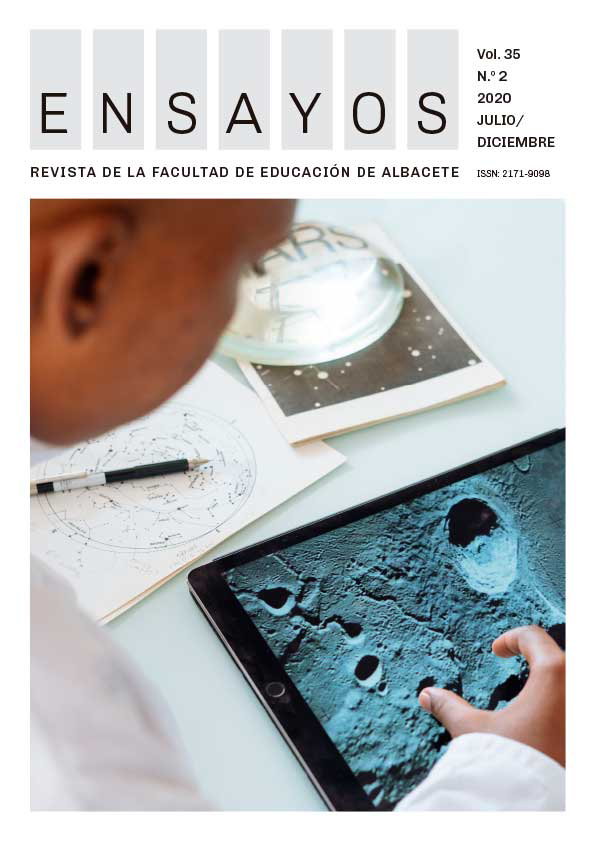Las variables afectivas y la eduación bilingüe: Un estudio cuantitativo
Affective variables and bilingual education: a quantitative study
DOI:
https://doi.org/10.18239/ensayos.v35i2.2471Resumen
Resumen:
AICLE ha supuesto un antes y un después en la forma de concebir la enseñanza de contenido y lengua de forma simultánea en el continente europeo. Tanto es así, que son numerosos los estudios que demuestran que los alumnos que forman parte de programas AICLE están más motivados que sus compañeros, que estudian inglés como lengua extranjera (Doiz, Lasagabaster y Sierra, 2014). Así, el principal objetivo del presente estudio consiste en averiguar si existen diferencias significativas entre los alumnos que forman parte del programa AICLE y los que no, en cuanto a variables afectivas se refiere. Nuestros participantes son alumnos de sexto de primaria, los cuales cumplimentaron un instrumento de medida cuantitativo. Los resultados indican que los participantes AICLE están más motivados, tienen una mayor presencia de los yoes y tienen menos ansiedad.
Palabras clave: bilingüismo; variables afectivas
Abstract
The CLIL approach has meant a turning point in the way content and language teaching is conceived in Europe. So much so, that there are numerous studies that show that students who are part of CLIL programmes are more motivated than their peers, who study English as a foreign/second language (Doiz, Lasagabaster & Sierra, 2014). Thus, the main objective of this study is to find if there are significant differences between students who are part of a CLIL programme and those who do not in terms of affective variables. Our participants are sixth-grade students who completed a quantitative instrument. The results obtained indicate that participants enrolled in CLIL schools are more motivated, have a greater presence of the selves and have less anxiety.
Key words: bilingualism; affective variables
Descargas
Publicado
Número
Sección
Licencia
Derechos de autor 2020 ENSAYOS. Revista de la Facultad de Educación de Albacete

Esta obra está bajo una licencia internacional Creative Commons Atribución-NoComercial-SinDerivadas 4.0.
Ensayos. Revista de la Facultad de Educación de Albacete conserva los derchos patrimoniales (copyright) de las obras publicadas, y favorece y permite la reutilización de las mismas bajo la licencia de Creative Commons Reconocimiento-NoComercial-SinObraDerivada 4.0 Internacional. Se pueden copiar, usar, difundir, transmitir y exponer públicamente, siempre que: i) se cite la autoría y la fuente original de su publicación (revista, editorial y URL de la obra); ii) no se usen para fines comerciales; iii) se mencione la existencia y especificaciones de esta licencia de uso.



